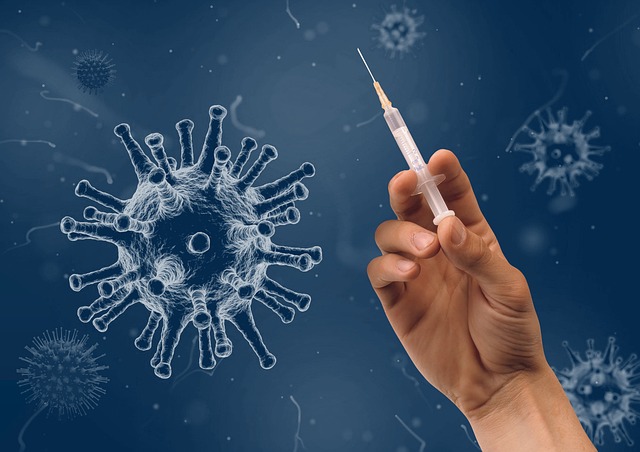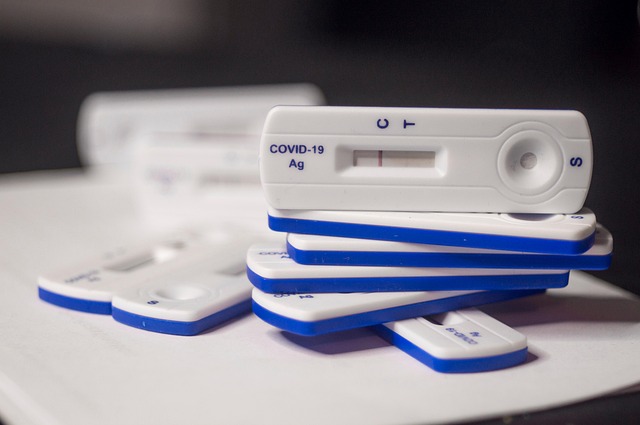Age-related testosterone decline can be addressed through proactive measures focusing on lifestyle changes and dietary adjustments for quick testosterone results. Balanced diet rich in zinc, vitamin D, healthy fats, and regular strength training stimulate production. Stress management, adequate sleep, and at-home testing further support hormone health. For severe cases, medical interventions like Testosterone Replacement Therapy (TRT) provide immediate results, with consulting healthcare professionals essential for safe, tailored approaches.
“Discover how to reverse declining testosterone levels and reclaim your vitality! This comprehensive guide explores effective strategies to boost your T-levels naturally. Understand the causes behind testosterone decline, from age to lifestyle factors. Adopt healthy habits, make dietary adjustments, and unlock the power of exercise to stimulate testosterone production. For those seeking faster results, medical options are also discussed. Reclaim energy, libido, and overall well-being with these proven approaches, offering both short-term and long-lasting solutions for improved testosterone levels.”
- Understand Testosterone Decline Causes
- Adopt Healthy Lifestyle Choices
- Dietary Adjustments for Testosterone
- Exercise to Boost Testosterone Levels
- Medical Options and Quick Results
Understand Testosterone Decline Causes

Testosterone decline is a natural part of aging, but understanding its causes can help you take proactive steps to reverse or slow down this process. Several factors contribute to low testosterone levels in men. One of the primary reasons is age; as men grow older, their bodies naturally produce less testosterone. This hormonal shift often begins around age 30 and accelerates after 40, leading to a variety of symptoms like reduced muscle mass, decreased energy, and changes in sexual function.
In addition to aging, lifestyle choices can significantly impact testosterone levels. For instance, obesity is linked to lower testosterone because fat cells produce oestrogen, which can bind to testosterone receptors and reduce the hormone’s availability. Similarly, inadequate sleep or excessive stress can disrupt the body’s hormonal balance. A balanced diet rich in testosterone boosting foods for men, regular exercise, especially strength training, and managing stress levels can all play a crucial role in improving testosterone health and achieving quick testosterone results. Moreover, considering a simple at-home testosterone test might be a good initial step to assess your current hormone levels and guide further actions.
Adopt Healthy Lifestyle Choices

Adopting healthy lifestyle choices is one of the quickest ways to see quick testosterone results. Regular exercise, a balanced diet, and sufficient sleep are key components in maintaining optimal hormone levels. Engaging in strength training exercises can help increase testosterone production naturally. A diet rich in lean proteins, healthy fats, and fruits and vegetables provides the body with the necessary nutrients to support hormonal balance. Additionally, prioritizing quality sleep allows for proper hormone regulation, as both cortisol and testosterone have natural cycles that align with sleep-wake patterns.
When it comes to what increases testosterone levels, managing stress is crucial. Chronic stress can disrupt hormonal balance, so incorporating relaxation techniques like meditation or yoga can be beneficial. Moreover, supporting your men’s health and testosterone balance through regular check-ups and addressing any underlying medical conditions is essential. A thyroid test, for instance, can help identify potential thyroid imbalances that may impact testosterone levels.
Dietary Adjustments for Testosterone

Maintaining a balanced diet is crucial for optimal hormone levels, including testosterone. For quick testosterone results, focus on incorporating nutrient-dense foods that support hormone production and regulation. Foods rich in zinc, such as oysters, beef, and pumpkin seeds, are known to boost testosterone levels naturally. Additionally, vitamin D plays a vital role; include fatty fish like salmon and mackerel, egg yolks, and fortified dairy products to ensure adequate intake.
When considering how to fix low testosterone naturally, diet is a significant factor. Incorporating the right fats, such as omega-3s found in avocados and walnuts, can help. Also, staying hydrated by drinking plenty of water is essential. Avoid excessive sugar and processed foods, as they can negatively impact hormone levels. Regularly testing your testosterone levels online with a simple at-home kit can help monitor progress and guide dietary adjustments for optimal results.
Exercise to Boost Testosterone Levels

Regular exercise is one of the most effective ways to achieve quick testosterone results and reverse declining levels. When combined with a balanced diet, physical activity stimulates the release of testosterone, which can help boost energy, strength, and overall well-being. High-intensity interval training (HIIT) and resistance exercises like weightlifting are particularly beneficial as they promote muscle growth and fat loss, both of which are linked to higher testosterone production.
Moreover, exercise helps reduce stress hormones that can block testosterone production. Stress is a significant factor in testosterone decline, so incorporating regular workouts into your routine can be a game-changer. Remember, it’s not just about the type of exercise but also the intensity and frequency. Consistency is key; aim for at least 150 minutes of moderate aerobic activity or 75 minutes of vigorous exercise each week, along with two to three strength training sessions.
Medical Options and Quick Results

For those seeking immediate results, exploring medical options can be a viable route to reversing declining testosterone levels. Testosterone replacement therapy (TRT), available in various forms such as pills or shots, offers quick testosterone results by directly addressing the deficiency. This approach is particularly beneficial for individuals with severe cases of low T who have not responded well to lifestyle changes.
While testosterone pills vs shots each have their advantages, TRT generally provides faster and more consistent outcomes. However, it’s crucial to consult with a healthcare professional to determine the safest methods to boost testosterone, considering potential side effects and personal health history. Additionally, understanding what foods block testosterone production can be valuable in optimizing hormone levels alongside medical intervention.
Reversing the signs of declining testosterone is achievable through a combination of healthy lifestyle choices, dietary adjustments, and exercise. By adopting a balanced diet rich in zinc and vitamin D, incorporating strength training and high-intensity interval workouts, and prioritizing sleep, you can naturally boost testosterone levels. For those seeking quicker results, medical options like hormone replacement therapy provide an effective solution. Remember, the key is to consult with healthcare professionals who can guide you in navigating the best approach for your body, ensuring you achieve optimal testosterone levels safely and efficiently.
